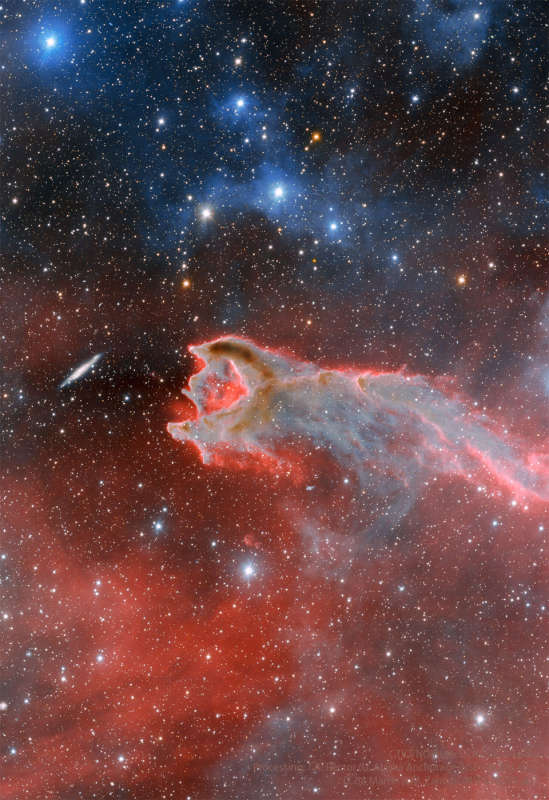Credit & Copyright: CTIO,
NOIRLab, DOE, NSF, AURA;
Processing: T. A. Rector
(U. Alaska Anchorage/NSFBs NOIRLab),
D. de Martin & M. Zamani (NSFBs NOIRLab)
Explanation:
Can a gas cloud eat a galaxy?
It's not even close.
The "claw" of this odd looking "creature" in the
featured photo is a gas cloud known as a
cometary globule.
This globule, however,
has ruptured.
Cometary globules
are typically characterized by
dusty heads and
elongated tails.
These features cause cometary
globules
to have visual similarities to
comets,
but in reality they are very much different.
Globules are frequently the birthplaces of stars,
and many show very young
stars in their heads.
The reason for the rupture in the head of
this object is not yet known.
The galaxy
to the left of the globule is huge, very far in the distance, and only placed near
CG4 by
chance superposition.
1999 2000 2001 2002 2003 2004 2005 2006 2007 2008 2009 2010 2011 2012 2013 2014 2015 2016 2017 2018 2019 2020 2021 2022 2023 2024 2025 |
Yanvar' Fevral' Mart Aprel' Mai Iyun' Iyul' Avgust Sentyabr' Oktyabr' Noyabr' Dekabr' |
NASA Web Site Statements, Warnings, and Disclaimers
NASA Official: Jay Norris. Specific rights apply.
A service of: LHEA at NASA / GSFC
& Michigan Tech. U.
|
Publikacii s klyuchevymi slovami:
cometary globule - globuly - zvezdoobrazovanie
Publikacii so slovami: cometary globule - globuly - zvezdoobrazovanie | |
Sm. takzhe:
Vse publikacii na tu zhe temu >> | |
